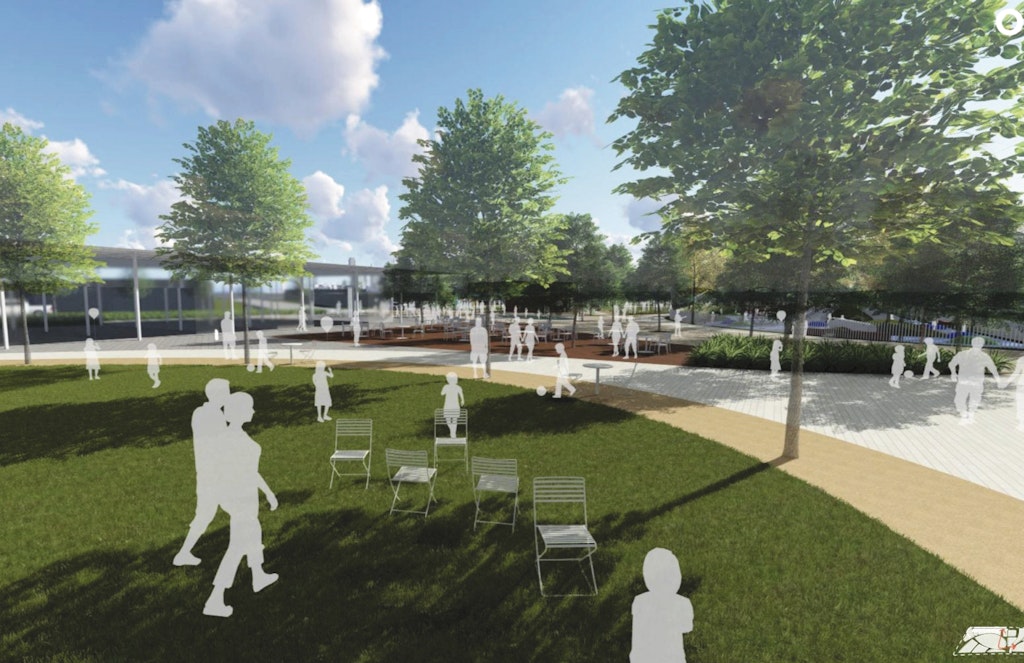DEVELOPMENT
Dallas OKs deal for Oak Cliff deck park
A nonprofit foundation will oversee the design and construction of a park being built over Interstate 35E in Oak Cliff.
The Dallas City Council unanimously approved a development agreement on Wednesday with the Southern Gateway Public Green Foundation for the $172 million project.
The 5-acre southern Dallas park will be built in two phases. The first covers construction for about half of the park — from Ewing Avenue to Lancaster Avenue — and is projected to open in late 2023. It’s not clear when the second half, which continues toward Marsalis Avenue, would open.
The deck park would span I-35E near the Dallas Zoo and is modeled after Klyde Warren Park in Uptown. The park will feature lawns, a playground, water features and an area for food trucks.
Project proponents have said the park is meant to foster more economic development and reconnect neighborhoods divided by I-35E.
When the highway was built in the 1950s, it cut through the Tenth Street Historic District in Oak Cliff and led to the demolition of dozens of homes and businesses. Tenth Street is one of the city’s oldest neighborhoods. Founded by former slaves after the Civil War, it is one of the few intact freedmen’s towns in the country.
But today it’s one of the poorest areas in the city. In 2018, the area’s median household income was $25,385 a year, less than half the Dallas County median, according to Census Bureau data. Analysis of Census data by the Parkland Center for Clinical Innovation shows the area’s residents have the lowest life expectancy in Dallas County, around 64 years old.
Southern Gateway Public Green Foundation during the summer cited projections showing the deck park could attract more than 2 million visitors a year and over 2,400 new residents to the area. The new green space could also generate around $14 million in new revenue from property taxes and about $330 million in sales tax money from shops and restaurants, according to an analysis the nonprofit shared with the council in August.
Council member Cara Mendelsohn noted that Dallas doesn’t have formal policies to stop gentrification and said she felt moving forward without plans to address displacement was “dangerous for our city.”
“This is an exciting new project, and I support it,” she said, “but it doesn’t take a crystal ball to see what’s going to happen.”
Council member Carolyn King Arnold, who represents the Tenth Street Historic District, said she would urge the city to work on preventing long-time residents from being priced out of their homes due to increasing property values.
The first phase of development for the park is estimated to cost $82 million. Dallas is contributing $7 million through 2017 bond money, $40 million from the North Central Texas Council of Governments and $35 million in private money raised by the Southern Gateway Public Green Foundation.
The second phase is estimated to cost $90 million but the sources for that money haven’t been finalized. The nonprofit is committed to raising up to $30 million.
Twitter: @EvertonBailey

